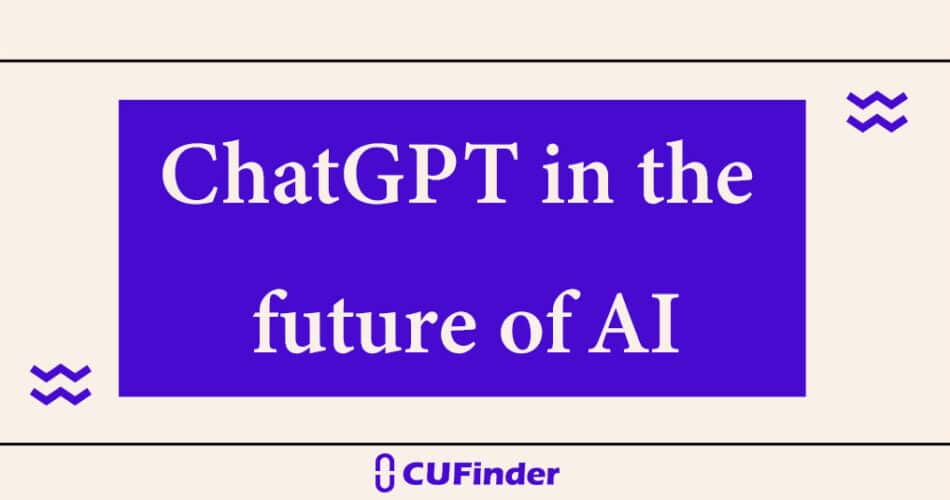Conversational AI is a rapidly growing field, with businesses and developers seeking ways to create chatbots and other AI-powered tools that can interact with humans in a natural and engaging way. One of the most advanced tools currently available is ChatGPT, an AI-powered chatbot developed by OpenAI.
In this article, we’ll take a closer look at how ChatGPT is shaping the future of conversational AI, exploring its potential applications and the ways in which it could transform the way we interact with technology.
The Power of Natural Language Processing
One of the key ways in which ChatGPT is shaping the future of conversational AI is through its advanced natural language processing capabilities. By using a neural network-based approach, ChatGPT is able to analyze and understand the context in which a query is being used, generating responses that are tailored to the specific user.
This is a significant development in the field of conversational AI, as it allows chatbots to provide personalized recommendations and advice to users, improving the overall quality of the user experience. As natural language processing technology continues to advance, we can expect to see more and more chatbots and other AI-powered tools that are able to understand and interact with humans in a natural and engaging way.
The Future of Customer Service
Another way in which ChatGPT is shaping the future of conversational AI is through its potential applications in customer service. By automating and streamlining customer service processes, businesses can provide users with instant access to information and support, improving the overall quality of the customer experience.
With the advanced natural language processing capabilities of ChatGPT, businesses can provide users with personalized recommendations and advice, improving the efficiency and effectiveness of customer service operations. As businesses continue to seek ways to improve the quality of their customer service, we can expect to see more and more applications of conversational AI tools like ChatGPT.
Transforming Education
ChatGPT also has the potential to transform the field of education, providing students with instant access to information and support. By using ChatGPT to provide support, students can improve their academic performance and achieve better outcomes.
ChatGPT can be used to generate personalized recommendations and advice, providing students with tailored resources and support. This has the potential to revolutionize the way in which students interact with technology, providing them with a more engaging and interactive learning experience.
The Future of Personalization
As natural language processing technology continues to advance, we can expect to see more and more applications of conversational AI tools like ChatGPT in a wide range of industries and applications. One of the key areas in which chatbots are likely to play an increasingly important role is in the area of personalization.
By using chatbots like ChatGPT to provide personalized recommendations and advice, businesses can improve the quality of the user experience and increase customer satisfaction. As businesses seek ways to differentiate themselves in an increasingly competitive market, we can expect to see more and more applications of conversational AI tools that are designed to provide users with a more personalized experience.
Ethical Considerations
As conversational AI tools like ChatGPT become increasingly advanced, there are a number of ethical considerations that must be taken into account. For example, there is a risk that chatbots could be used to spread false or misleading information, or to manipulate users into making decisions that are not in their best interests.
To address these concerns, it will be important for businesses and developers to ensure that their chatbots are designed with user safety and privacy in mind. This could involve implementing strict guidelines for data collection and storage, as well as incorporating safeguards to prevent the spread of false or misleading information.
Conclusion
ChatG
PT is a powerful tool that is shaping the future of conversational AI. With its advanced natural language processing capabilities, ChatGPT has the potential to revolutionize the way in which businesses interact with their customers, as well as the way in which students learn and individuals access information.
As the field of conversational AI continues to advance, we can expect to see more and more applications of chatbots like ChatGPT in a wide range of industries and applications. While there are certainly ethical considerations that must be taken into account, the potential benefits of conversational AI are significant, including improved customer service, better educational outcomes, and a more personalized user experience.
As businesses and developers continue to explore the possibilities of conversational AI, it will be important to ensure that these tools are designed with user safety and privacy in mind. By incorporating best practices for data collection and storage, as well as incorporating safeguards to prevent the spread of false or misleading information, we can ensure that conversational AI is used to improve the quality of the user experience, while also protecting users from potential harm.
Overall, ChatGPT is a powerful tool that is helping to shape the future of conversational AI. With its advanced natural language processing capabilities, it has the potential to transform the way in which we interact with technology, providing us with a more natural, engaging, and personalized user experience. As the field of conversational AI continues to evolve, we can expect to see more and more applications of tools like ChatGPT, improving the quality of our lives and the way we interact with the world around us.
